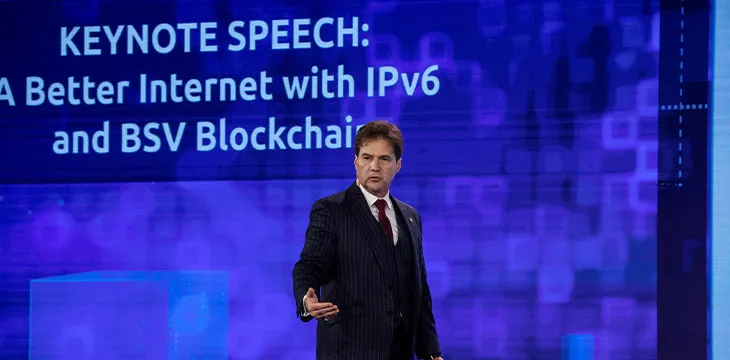|
Getting your Trinity Audio player ready...
|
Bitcoin has the power to create global-sized local industries, transform cybersecurity, and build a more honest system, said Dr. Craig S. Wright. Speaking on a panel at the Global Forum/Shaping the Future event in Muscat, Oman, in October 2022, he described how Bitcoin could incentivize positive activities through transparency and accountability.
Also on the panel were Fatma Al Mukhaini, Chair, Robotic Process Automation Developer, PDO Oman; Professor Latif Ladid, Chair IPv6 Forum, University of Luxembourg; Daniele Tumietto, Adjunct Professor, Politecnico de Milano, Italy; and Halah Al Zadjali, Senior Executive of Governance, Policies and Governance Directorate, MTCIT Oman.
New ways to create global industries and stay local
Michael Stankosky previously met (www inventor) Sir Tim Berners-Lee and had been a member of his advisory committee. He noted the feeling “when you meet people like Craig who are inventors too, changing the way we do everything.”
Dr. Wright’s presentation was titled “Bitcoin, IPv6, and the Future of the Internet,” although he spoke more generally about what Bitcoin is, what it isn’t, and a few of the efficiencies it could bring to money, global business, and cybersecurity.
“Really, what we’re talking about is a system designed to make all of the problems in transferring money go away. It’s not about anarchy, it’s not anti-bank, and it’s not anti-government.”
He told the audience that Bitcoin could transform business by allowing people to keep industries in the places they’re from rather than putting all their efforts into relocating. They could build companies without the end goal of selling them to Facebook or “consolidating everything into a small company group in Silicon Valley.” Bitcoin allows new ways to monetize activities, utilizing micropayments to move away from the internet’s current ad-selling model.
Bitcoin creates new ways of doing things, such as new incentives to sponsor and “own” ecological projects and humanitarian activities, he said.
He also reiterated that Bitcoin is a transparent system designed to counter crime and corruption no matter who was attempting it, whether they be hackers, drug dealers, terrorists, or dishonest governments. On the Bitcoin blockchain, it’s impossible to ever delete transaction logs, taking investigators back to a time when they used human intelligence and connection-tracking rather than mass surveillance.
“It enables privacy, but the blockchain is not encrypted. It is publicly auditable by every person on Earth. That should scare the bejeebus out of every dishonest government.”
Cybersecurity and IPv6
Moving on to cybersecurity, he mentioned the Bitcoin SV (BSV) blockchain project Certihash by name, describing how it logs IT system events on-chain, sends alerts about any abnormal activity, and keeps records of all access attempts. This saves data breach investigators months of work in trying to figure out what happens, something that’s a large drag on the digital economy today.
Integrating all this with IPv6 “means radically rethinking everything we do on the internet,” he said, referring to past incidents which saw flow-on events from compromised digital certificate providers that compromised everyone who used them, “practically everyone on Earth.”
Bitcoin could usher in a new era of honesty. “I want you to think about what transparency really means,” Dr. Wright said. “Do you want to be stewards to your people, or do you want to keep them in the dark?”
Professor Latid Ladid, IPv6 Forum chair, continued the internet protocol theme. He compared unique IPv6 addresses to telephone numbers, saying that in the 1960s, not everyone had a phone number, but these days it would be unusual not to have a unique one. You need to have your own internet address to have any power, he said, pointing out that internet users today follow the rules and security practices dictated by other providers.
He also noted IPv6 advantages for blockchain and gaming, and gave an update on which countries were doing the best with IPv6 deployment. Asian countries like Japan, Malaysia, India, and Thailand have made great gains, as have Saudi Arabia and the United Arab Emirates. Countries like France have accelerated IPv6 adoption using programs such as granting 5G licenses only to those working with the new protocol.
The panel discussion was part of the Global Forum event called “the International think-tank on the digital future” and “the Davos of ICT.” The 2022 event took place in Oman, the first time it has been held in the Middle East. Oman’s “Vision 2040” initiative seeks to capitalize on digitization technologies and make the country a testbed for new technologies across many sectors through infrastructure and investment incentives.
Watch: Blockchain Venture Investments: Driving Utility for a Better World

 07-14-2025
07-14-2025 





